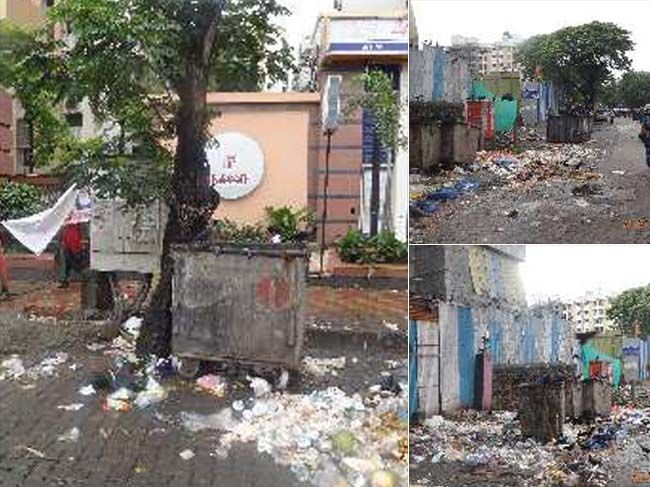“Mumbai is under huge pressure when it comes to waste. Our oldest 90-year old landfill, Deonar is like a bomb and can explode any time. It is time for individual societies to start segregating their waste. If they continue to neglect this crucial thing, the already worsening situation will become hazardous,” says Sukruta Pehphe, a Mumbai resident who is battling the city’s growing waste problems.
Mumbai’s landfills are as tall as five-storeyed building and are becoming a cause of concern for many Mumbaikars. The city generates around 9,600 metric tonnes of waste daily, most of which ends up in the landfills. There is now an increasing sense of awareness among Mumbaikars that they need to pitch in and start managing their waste better. One such initiative has been taken by the residents of Vijay Nagar Housing Society in Andheri who have started a ‘Zero Garbage’ campaign in their complex. The rule of the campaign is simple – Reduce the waste you generate and send out minimum waste to the landfills. The society used to generate around 8,700 kg of garbage every month, all of which went straight to the landfills. Now, thanks to their ‘Zero Garbage’ policy, less than 10% of waste is being sent for dumping. So what triggered this huge change?
Also Read: Change Begins At Home: 5 Simple Ways To Reduce Waste
A Simple Step Towards A Green Future
Everyone deserves a clean and hygienic society to live in. For residents of Mumbai, living next to big garbage dumps is a common thing. We wanted to change this practice. Way back in 2015, the BMC (Brihanmumbai Municipal Corporation) had put two garbage bins in front of our society gate. There are around 2,000 people living in our society and these bins used to fill up quickly, resulting in endless bad odour. We demanded the removal of these bins. The BMC agreed but said it will be done only if we could manage our waste effectively. That’s when we started our mission of Zero Garbage, explains Ms Sukruta, a physics professor by profession, who is a volunteer of the Zero Garbage campaign.
What followed next was months of hard work. Many education drives were initiated in order to make the people of the society aware about the problems of bad waste management and how they can help.
We distributed dustbins for dry garbage to all residents to emphasize the importance of segregating dry garbage. The housing society also built 10 compost pits with proper aeration and drainage system, adds Ms Sukruta.
Also Read: 100% Waste Segregation: Focus On Behavioural Change And Ragpickers, Say Experts
India Take A Cue: How The Society Manages Their Waste
Unlike most other societies in the area, residents of the Vijay Nagar Housing Society have started segregating their waste at home. This is a crucial step that has also been stated in the Solid Waste Management 2016 rules as well as the Swachh Bharat Abhiyan. However, implementation across the country still remains abysmal.
Secondly, the housing society ensured that all their wet waste is used for composting and the dry garbage is sent for recycling.
How The Zero Waste Model Is Reducing Waste Load From Overgrowing Landfills
The housing society generates about 6,000 kg of wet waste which, once composted is used as manure for the garden in their complex. They also sell the excess manure to corporates. Dry waste of around 7,500kg is sent for recycling.
Also Read: Top 10 Things To Know About India’s Waste Management Woes
For the initial few months we faced an issue of foul smell at the composting sites. But, after further research we manage to curtail these issues, added Ms Sukruta. Composting is a simple technique, which when done properly actually does emit any foul order.
Just one housing society in a megalopolis like Mumbai has managed to prevent about 90,000 kgs of garbage in a year from getting dumped straight into the landfills. All they did was educate themselves and start the simple process of segregating their waste at home. Now, imagine if 1.2 billion people across India start doing what this housing society is doing, India will soon be free from all its waste woes. The zero garbage project of Mumbai’s Vijay Nagar Housing Society is a success story that India can easily adopt.































